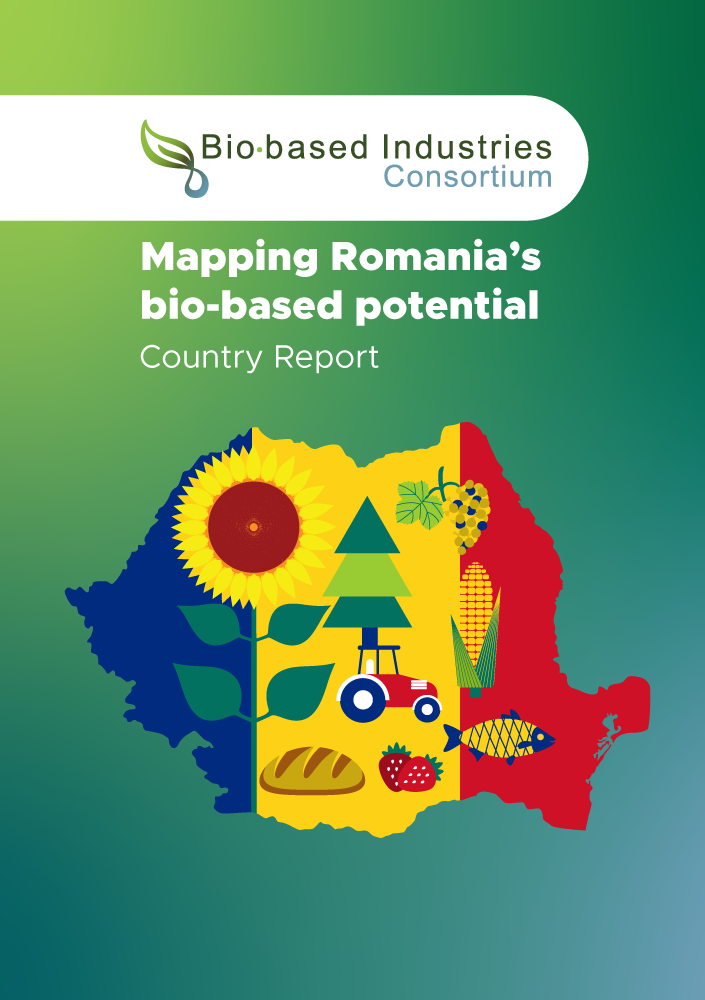
The Bio-based Industries Consortium (BIC), Europe’s leading industry association putting circularity, innovation and sustainability at the heart of the European bioeconomy, has published an updated version of its Country Report on Romania, “Mapping Romania’s bio-based potential”.
The European bioeconomy represented between 10.9-16% of EU GDP in 2019 (EU JRC report 2023). The bio-based industries contributed 814 billion euros to the EU’s economy in 2019 (The European Bioeconomy in Figures 2008-2019).
BIC’s updated Country Report on Romania builds on the first edition released in 2018. It maps out the potential for bio-based growth in the country, highlighting untapped and under-exploited bio-based resources. The report helps to identify new opportunities for the primary sectors, the food and beverage sector, the blue bioeconomy, bio-based chemicals, etc. to valorise side streams and waste that today have low or no value.
Further developing Europe’s bio-based industries in Romania presents opportunities for domestic and foreign investment at a time when green growth is high on the EU agenda. In addition, the EU continues efforts to increase the participation in innovation and research of the EU-13 Widening Countries, which includes Romania.
BIC is a partner in expanding industrial bio-based activities across Europe. To this end, we are focusing on assisting countries that want to benefit more from their enormous potential for a bioeconomy given their availability of sustainable feedstock and presence of innovation centres. Romania’s strong industries in the primary and chemical sectors, combined with its well-organised innovation support infrastructure will make it possible to accelerate bio-based industrial activities and the bioeconomy in the country and the region in the short term.
“We hope that as this report is disseminated, it will promote the bioeconomy and its potential in Romania; that it will motivate all stakeholders – industry, policymakers and academia – to exploit the opportunities for investment and greening the economy. Romania has a strong agricultural sector, which can be the basis for an innovative and sustainable bio-based industry in the country, creating jobs and growth,” said BIC Executive Director Dirk Carrez.

About the Bio-based Industries Consortium
The Bio-based Industries Consortium (BIC) is a non-profit organisation aiming to make Europe’s innovative, sustainable and competitive bio-based industry the leader of a circular bio-society in Europe by 2050. Its membership includes 250+ industry members covering the whole value chain, from primary production to the market, across multiple and diverse sectors including agriculture & agri-food, aquaculture & marine, chemicals and materials, including bioplastics, forestry and pulp & paper, market sectors, technology providers and waste management & treatment. BIC also represents the private sector in a 2 billion euro Public-Private Partnership (PPP) with the European Commission, focused on strengthening the bio-based industries sector in Europe – the Circular Bio-based Europe Joint Undertaking.
Source
Bio-based Industries Consortium, press release, 2024-03-21.
Supplier
Bio-based Industries Consortium (BIC)
Share
Renewable Carbon News – Daily Newsletter
Subscribe to our daily email newsletter – the world's leading newsletter on renewable materials and chemicals









